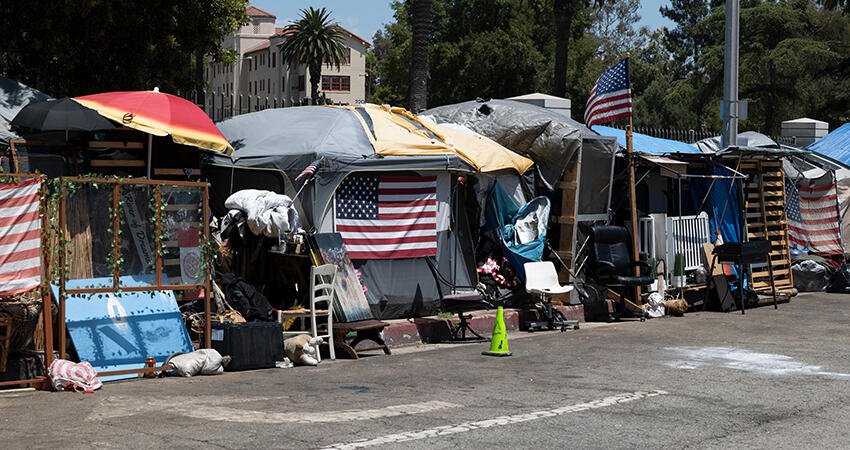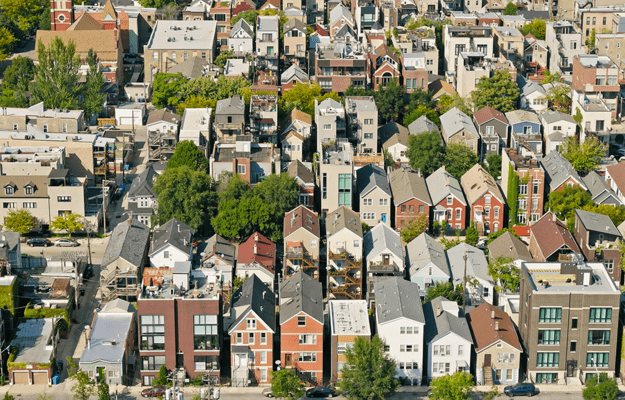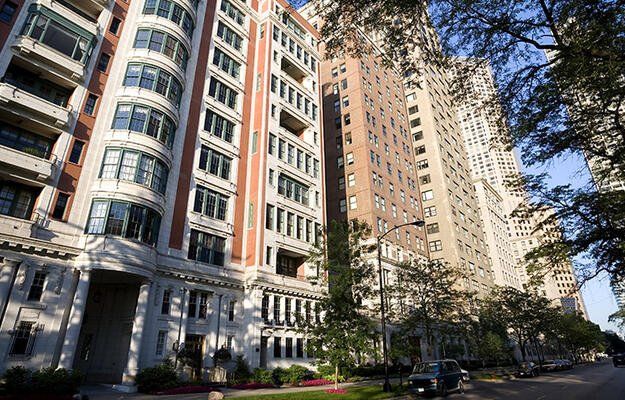
(MSPhotographic/Shutterstock)
Criminalizing Homelessness Creates Instability for Unhoused People
- Title:
-
No Right to Rest: Police Enforcement Patterns and Quality of Life Consequences of the Criminalization of Homelessness
- Author:
-
Tony Robinson
- Source:
- Publication Date:
-
2019
As unsheltered homelessness has risen across the United States, policymakers have increasingly implemented quality-of-life laws that criminalize “acts of living” (such as sleeping) to solve the problem. In 2012, the Denver City Council passed one such ordinance, commonly referred to as a camping ban, prohibiting anyone from “residing or dwelling in any place with shelter, and conducting activities of daily living such as eating, sleeping or the storage of personal possessions in such place.” Proponents contended that the policy would give police a “stick” to “push [unhoused people] into the arms of help.”
In this study, conducted in the aftermath of the high-profile camping ban, researchers sought to understand the effect of quality-of-life laws, or the criminalization of homelessness, on the experiences of unhoused Coloradans. The authors explored three questions:
- How are quality-of-life laws enforced on the ground in daily policing?
- What are the behavioral outcomes associated with these laws?
- What are the quality-of-life outcomes of such laws for people experiencing homelessness?
Primary data for the study came from two field surveys of unhoused people living in Colorado, with one survey targeting unhoused residents of Denver and the other conducted in 10 different cities across the state. The authors selected 10 cities with diverse population sizes and geographic locations, with the aim of broadly generalizing the findings to the state. The surveys focused on behavioral changes and self-reported quality-of-life consequences attributed to this style of policing (focused on the camping ban in the Denver survey). Both surveys were conducted among people experiencing homelessness, with teams of surveyors fanning out to sites that included homeless shelters, downtown parks, and tent communities. Consistent with best practices for surveying difficult-to-reach people, the surveyor teams visited each site multiple times a day. In total, 953 people responded to the two surveys (441 statewide, 512 to the Denver survey), with 31 accepting invitations for a follow-up open-ended interview.
Secondary data included police records of contacts, citations, and arrests of unhoused people under quality-of-life laws. The authors used these data, which they obtained from publicly available sources including the Denver Police Department and the Denver County Court Information Technology Department, to contextualize respondent-reported rates of police encounters. One limitation of the study is that, because it only samples those currently living without permanent housing, it’s unable to capture the effect of quality-of-life policing on people who may have been linked to services and are thus no longer experiencing homelessness.
Overall, the study found that unhoused Coloradans reported negative experiences with quality-of-life policing. In Denver, respondents reported having to move more frequently and to less safe locations, without a corresponding increase in service access.
Ten-city findings
- Ninety percent of respondents reported at least 1 police contact in their time living without a home. Twelve percent reported more than 10 contacts in the preceding six months.
- Seventy percent of respondents reported being ticketed in their time living without a home, with 60 percent of those ticketed reporting being incarcerated for a quality-of-life infraction.
- Ninety percent of respondents characterized their experiences with quality-of-life policing as more “harassing” than “helpful.”
Denver findings
- Eighty percent of those approached by police because of the camping ban were told to “move along” without any offer of services. Conversely, only about 10 percent were directed to social services during police contacts.
- Eighty-nine percent of respondents who slept outside before the camping ban reported continuing to sleep outside, with 66 percent reporting that they now seek more hidden places to sleep.
- Only 4 percent of respondents reported feeling that police had become more helpful in finding alternative sleeping arrangements since the ban.
- Respondents overwhelmingly reported that their lives have become more difficult since the camping ban. Sixty-six percent report avoiding well-lit downtown areas for more hidden locales, and 53 percent reported feeling less safe at night.
Policy implication
- The authors believe the findings support the proposals of “right to rest” acts, which would enable all people to use and move freely in public spaces, including sleeping and sheltering, so long as such acts were unobstructive.


